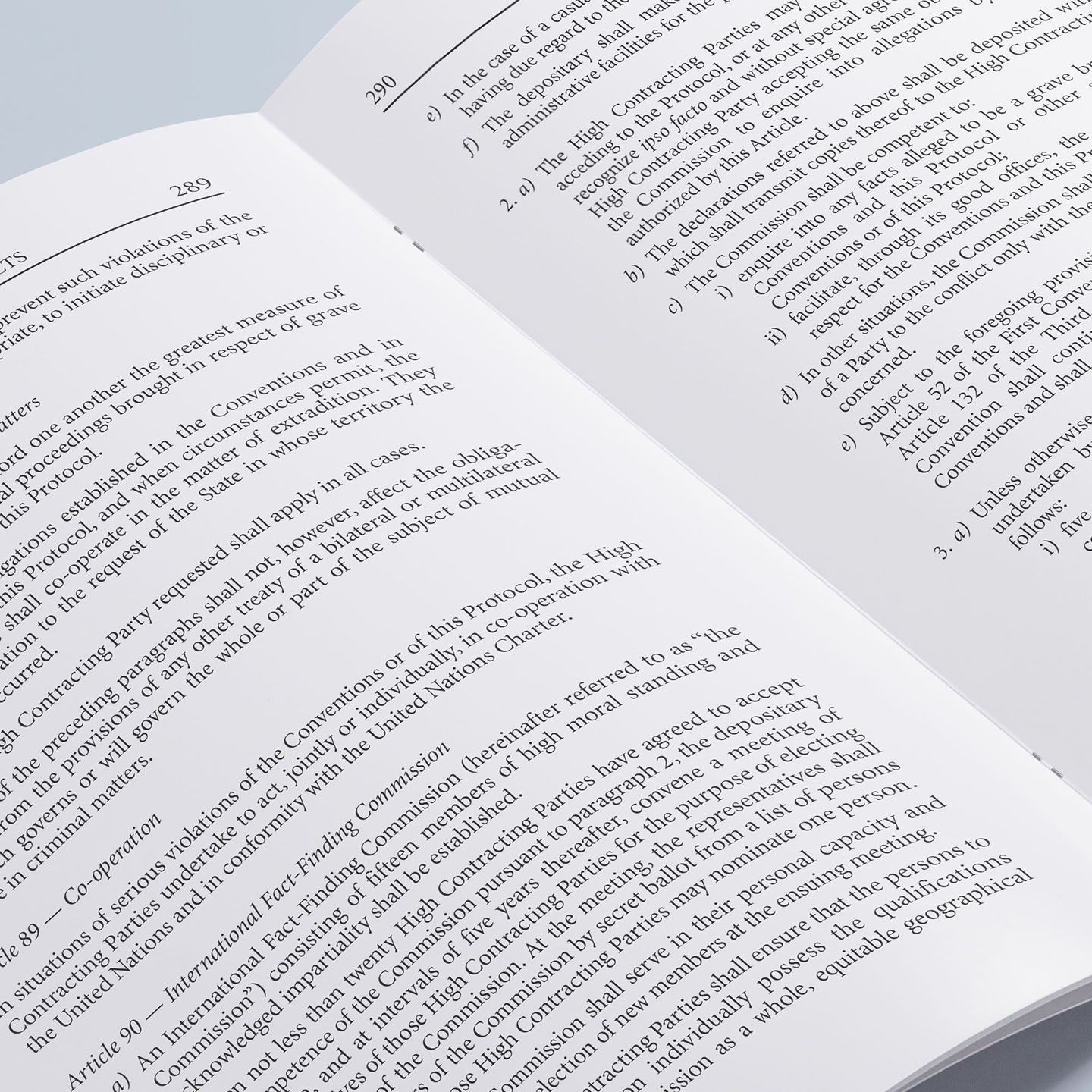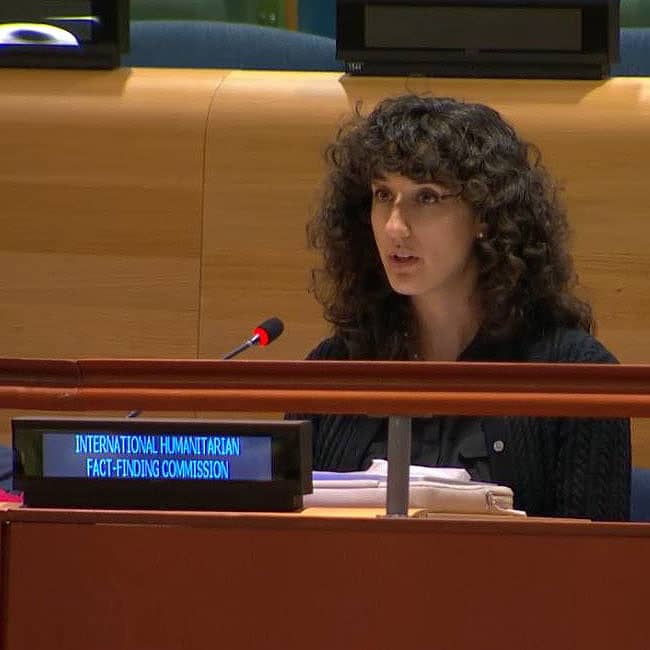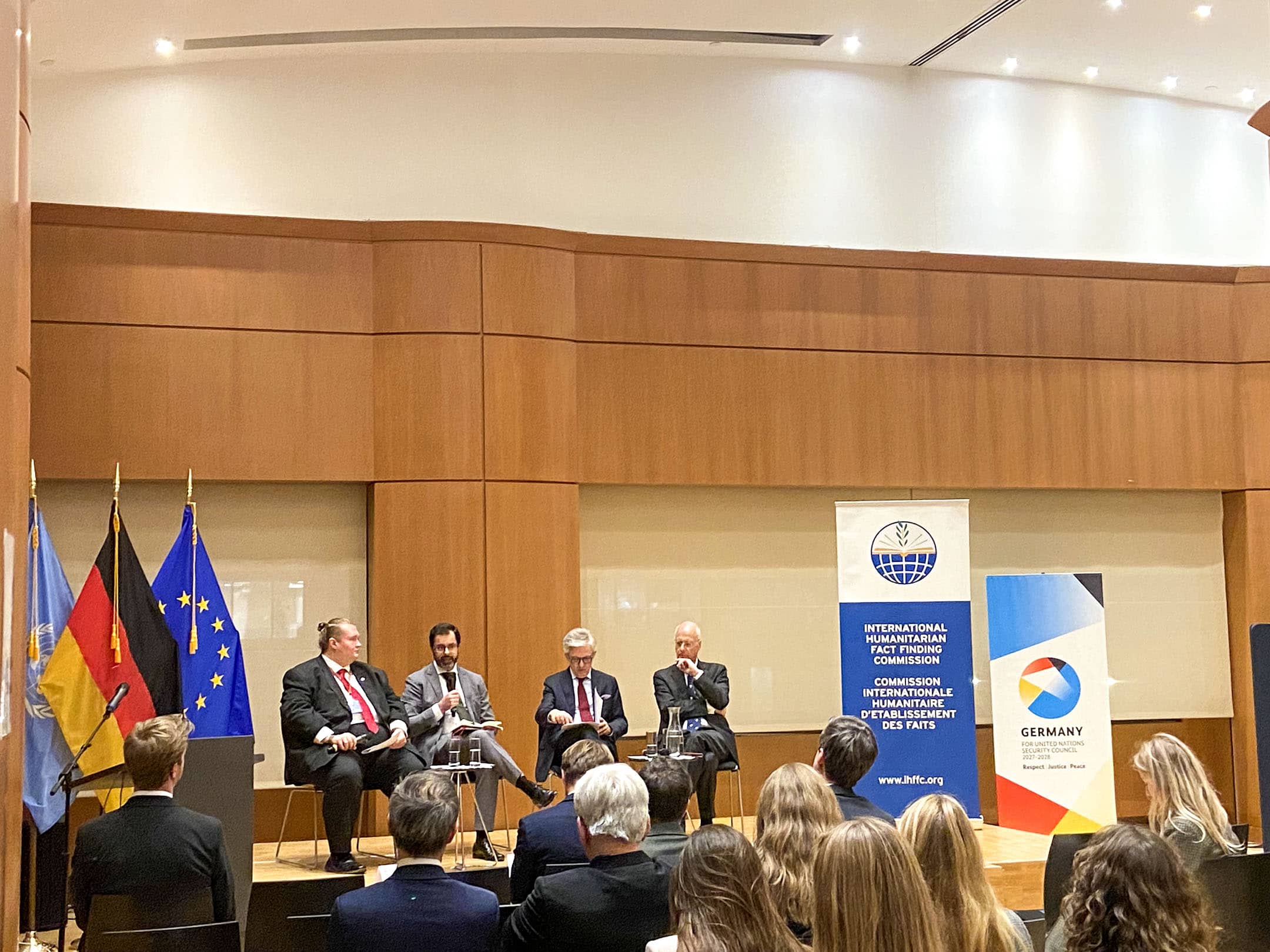In the fulfillment of its mandate, the Commission observes the principles of neutrality, independence, impartiality, and confidentiality.
Rules of the International Humanitarian Fact-Finding Commission
Read the Rules of the Commission

The Commission was officially constituted in 1991 and is a permanent international body whose main purpose is to investigate allegations of grave breaches and serious violations of international humanitarian law. The Commission's primary purpose is to contribute towards the implementation of, and ensure respect for, IHL in armed conflict situations. The Commission is thus an essential mechanism to help States ensure the international humanitarian law is implemented and respected during times of armed conflict.
The IHFFC stands at the service of parties to an armed conflict to conduct enquiries into alleged violations and to facilitate, through its good offices, the restoration of an attitude of respect for that body of law.
The IHFFC is a permanent body of 15 independent experts, acting in their personal capacity, elected by the 76 States Paries that have made a declaration of recognition under Article 90 of AP I.


When a complaint is initiated, the enquiry is to be undertaken, unless the parties otherwise agree, by a chamber of seven members: five members of the Commission, not nationals of any party to the conflict, appointed by the President of the Commission on the basis of equitable representation of the geographical areas, after consultation with the parties to the conflict, and two ad hoc members, again not nationals of any party to the conflict, one to be appointed by each side.
The chamber is to invite the parties to assist it and to present evidence. The chamber may seek such other evidence as it considers appropriate and may carry out an investigation of the situation on the ground. The chamber is to fully disclose all evidence to the parties which have the rights to comment on it and challenge it.
Once that procedure of the gathering of evidence is complete the chamber is to make findings. It is the Commission itself which submits to the parties a report on those findings, along with such recommendations as it may consider appropriate. If the Commission is unable to secure sufficient evidence for factual and impartial findings, it is to state the reasons for that inability.
The Commission may not report its findings publicly, unless all the parties to the conflict agree.
Read more about the Legal FrameIn recent years, the Commission has focused its activities on participation in the worldwide dissemination and implementation of international humanitarian law, enhancement of knowledge about the Commission and the potential role it can play, drawing attention to the requirements of States and international organizations regarding fact-finding and good offices, in particular in the light of new legal and political developments, the promotion of the recognition of its competence and the gathering of international support with a view to fulfill the important role it has been given by the international community.
In May 2017, the Commission was asked by the Organization for Security and Co-operation in Europe (OSCE) to lead an independent forensic investigation (IFI) in relation to an incident that occurred in Eastern Ukraine and caused the death of a paramedic and the injury of two monitors of its Special Monitoring Mission to Ukraine (SMM). The aim of the independent forensic investigation was to establish the facts of the incident by conducting a post-blast scene forensic investigation and technical assessment against the background of international humanitarian law.
The mission was carried out successfully and the IFI’s report was presented to the Permanent Council of the OSCE on 7 September 2017. An executive summary of the report was published by the OSCE.
Read Executive Summary of the Report

The IHFFC was invited to participate to the 24th session of the Assembly of States Parties of the International Criminal Court as an observer, held from 1-6 December 2025 at The Hague, the Netherlands.

The IHFFC delivered a statement during the UNGA Sixth Committee debate on Cluster II concerning the 2025 International Law Commission (ILC) report.

The International Humanitarian Fact-Finding Commission (IHFFC) held a side-event during International Law Week on October 28, 2025 at the German Permanent Mission to the United Nations.